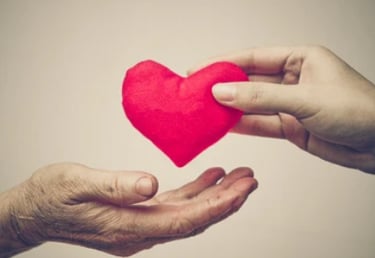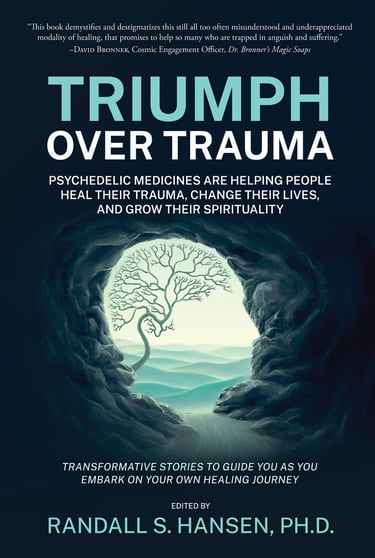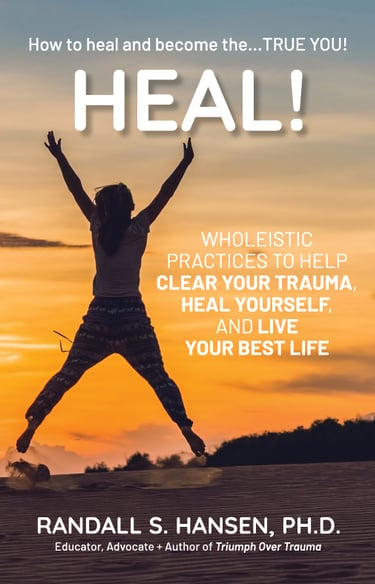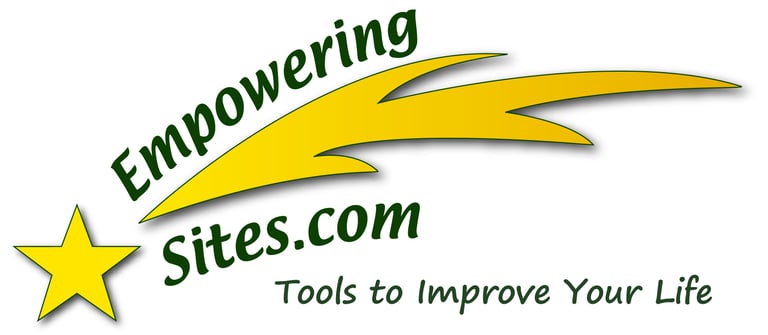What is Empathy -- and How Can You Be More Empathic?
"Each one of us has lived through some devastation, some loneliness, some weather superstorm or spiritual superstorm, when we look at each other we must say, I understand. I understand how you feel because I have been there myself. We must support each other and empathize with each other because each of us is more alike than we are unalike."--Maya Angelou
Empathy is what makes the world a better place -- a place of strong relationships and compassion. Empathy helps us connect with others, establish rapport and cooperate with others, and make better decisions. Empathy is part of the foundation for kindness and understanding -- for yourself and for your fellow humans.
Empathy deals with the ability of people to think outside oneself to recognize, understand, and share the thoughts and feelings of others. Think of empathy as the ability to walk in someone else's shoes -- to feel their plight and support them by listening to them and validating their thoughts and feelings.
Signs of Being Empathic
An empath is someone who not only is attuned to the feelings and emotions of the people around them, but someone who is willing to embrace the feelings of others. You're an empath if...
You enjoy listening to other people's issues
You are a natural peacemaker, seeking to avoid conflict
You have an innate sense of knowing when someone is hurting
You care about the well-being of others
You think about how others feel before speaking/judging
You like helping others who are struggling, suffering, or hurting
You are approached by people (friends, colleagues) seeking advice
You are overwhelmed by the news or tragic events
You are overwhelmed at social gatherings
You are overwhelmed by loud noises, bright lights, strong/odd odors/smells
Strategies for Cultivating Empathy
Sharing (and living) someone else's sorrow or tragedy takes emotional strength -- and many of us would rather just give a hug or a tissue to someone who is hurting instead of sitting down and simply being with another person without holding judgment or offering solutions... what's called holding space for another.
Holding space sounds easy, right? Wrong. Many of us have a natural inclination to offer advice, to make suggestions, or to push our agenda -- all of which can work in many situations, but none of those scenarios is holding space. Holding space means we take on that pain, that sorrow, that fear -- to help relieve the other person.
Still want to be more empathic? Here are a few strategies for doing so.
1. Try putting yourself in other's situations. Without knowing the full details of what someone is experiencing, we tend to make assumptions and judgments; instead, try harder to understand what others are going through -- and how you can help them (if they want more help than a listening ear).
2. Practice being more emotionally available/vulnerable. When a friend or co-worker shares something that is troubling them, they may not be looking for advice or answers. They simply may need someone to hear their problems and offer emotional support.
3. Work on listening skills. A big part of being an empath is actively listening to others and offering support. Many of us are poor listeners because we are often waiting to say something in response. Stop, listen.
4. Talk less, ask questions more. When people come to us to vent, share, complain, etc., some of us go into problem-solver mode rather than empathic mode. Empaths ask questions to help the other person better understand his/her situation.
5. Focus on feelings over solutions. Perhaps the most important skill for empaths is holding space for others -- so our goal is not to solve the other person's problems, but simply to be a sounding board for their feelings... to validate and support.
Final Thoughts on Empathy and Being an Empath
Having empathy for others -- being an empath -- is a beautiful thing, and some people are simply born with that kind of brain and heart, while others among us have to cultivate it. Of course, you can still have empathy without being an empath, but the difference is that empaths actually feel and retain the emotions of others within ourselves.
Thus, if you are on the high end of the empathy spectrum, be careful of placing too much time, energy, and effort into the problems of others... especially if you are ignoring your own needs. Being empathetic is extremely rewarding, but also potentially draining and exhausting. You need to always be sure and make time for yourself -- and your healing.
Finally, we are seeing promising results with plant medicines and empathy. Both cannabis and psilocybin have been shown to increase emotional empathy. Furthermore, other researchers have concluded that psychedelics increase prosocial behaviors, empathy, cognitive flexibility, creativity, and personality factors like openness, spirituality, self-transcendence, and mindfulness-related capabilities.
Additional Empathy Resources
See also this book: The Empath's Survival Guide: Life Strategies for Sensitive People.


Dr. Randall Hansen is an advocate, educator, mentor, ethicist, and thought-leader... helping the world heal from past trauma. He is founder and CEO of EmpoweringSites.com, a network of empowering and transformative Websites, including EmpoweringAdvice.com.
He is the author of the groundbreaking Triumph Over Trauma: Psychedelic Medicines are Helping People Heal Their Trauma, Change Their Lives, and Grow Their Spirituality and the well-received HEAL! Wholeistic Practices to Help Clear Your Trauma, Heal Yourself, and Live Your Best Life.
Dr. Hansen's focus and advocacy center around true healing ... healing that results in being able to live an authentic life filled with peace, joy, love. Learn more by visiting his personal Website, RandallSHansen.com. You can also check out Dr. Randall Hansen on LinkedIn.






